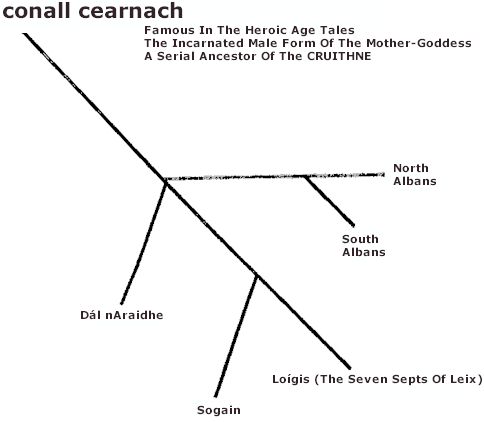
writing itself into Pict land or Albany. The
fact that Latin orthography was associated with and applied to the Latin and Gaelic
languages may explain the relative absence of written records concerning specifically Pictish
matters --and this state of affairs may well obscure the survival of Pictish as a spoken
vernacular for some time in the provencial areas away from the Royal Court (Strathclyde
British similarly has no written records). Here one may see in operation the always close
relationship between language, culture and race, as all three factors became more
generally Gaelic with the passage of time, though each influenced the emerging whole
(original ethnic tribal affiliations would, however, remain centrally important in the
political arena).
It is wrong to think that the Picts were
defeated as a group, though no doubt independent bands or kin-groups under certain
warlords fell victim to defeat. By the ninth century the cultural distinction between the
various Celtic groups was blurring, and in any case such distinctions had never had the
nation-state overtones we anachronistically place on them today. Neither were there many
players on that ancient landscape, by modern standards. From |

